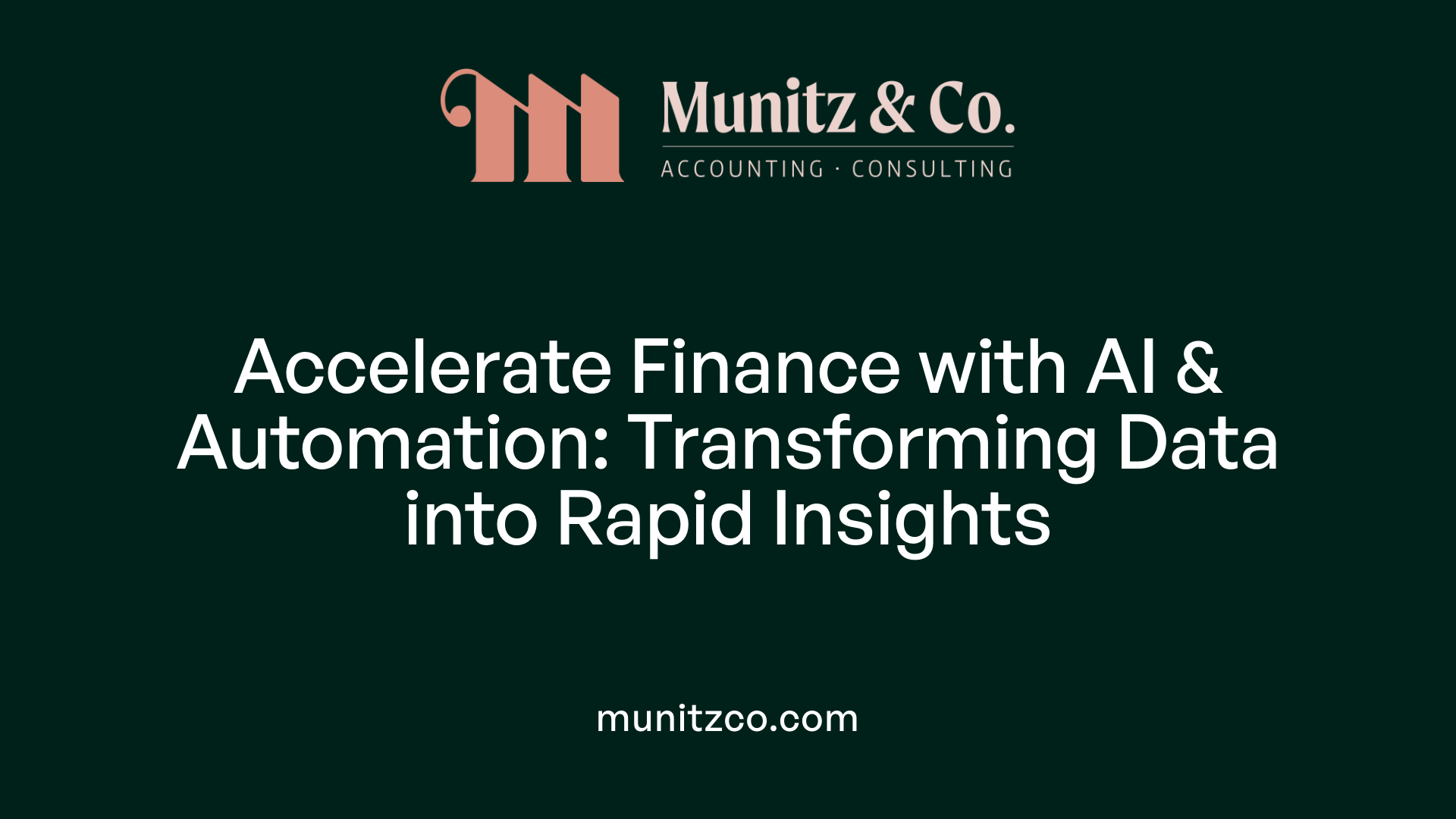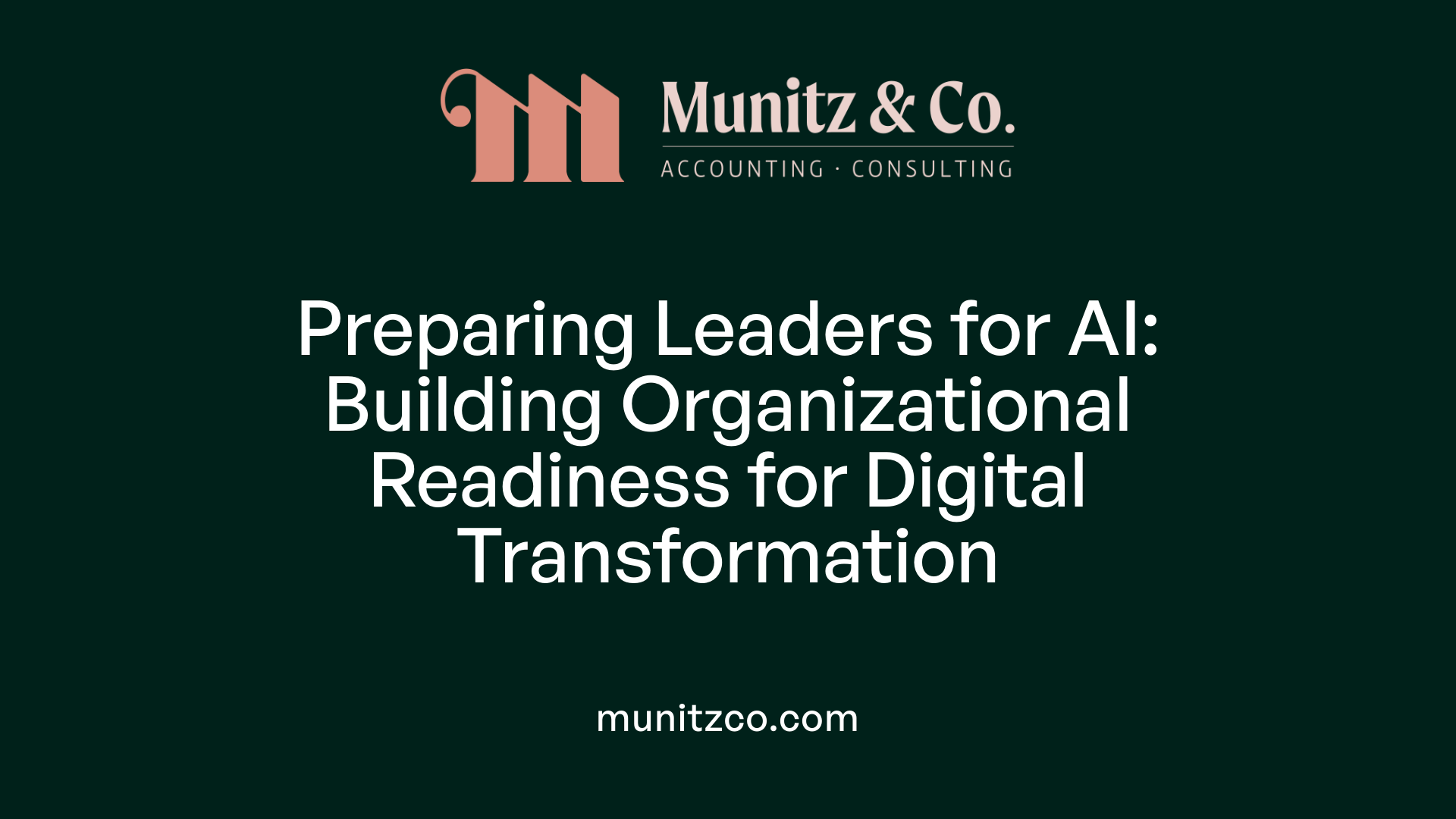Unlocking Speed Through Financial Intelligence
In today’s rapidly evolving business landscape, leaders who harness financial intelligence are not just keeping pace—they are moving faster. By leveraging data-driven insights, adopting innovative AI technologies, and balancing rigorous governance with agile decision-making, these leaders transform financial functions into strategic accelerators. This article explores why embracing financial intelligence empowers leaders to act decisively, optimize resources, and drive sustainable growth.
From Single Version of Truth to Sufficient Truth: Navigating Data Realities

Evolution from 'Single Version of Truth' to 'Sufficient Truth'
For decades, finance organizations pursued a "Single Version of Truth" model, aiming for a perfectly balanced ledger and universally agreed-upon data to ensure financial integrity. This aspiration centered on having one definitive set of data for all stakeholders. However, this ideal has become increasingly impractical in modern environments.
The concept of "Sufficient Truth" has emerged as a more pragmatic approach. It recognizes that not all data needs to be perfect or universally identical, but rather "fit for purpose." Finance leaders now strive for well-governed data that balances accuracy with flexibility based on each use case, adapting to the dynamic and complex data landscape.
Challenges Posed by Data Silos and Distributed Systems
Today's organizations face vast data distribution across multiple systems and departmental silos. Interactions among disparate platforms complicate achieving a seamless and unified dataset. Attempting to enforce a single version across these boundaries often leads to delays, bottlenecks, and inefficiencies.
Instead, the distributed nature of data requires agile data governance that can accommodate variation while safeguarding critical financial figures. Operational metrics and other less sensitive data can remain more flexible without compromising decision-making quality.
Role of Emerging Technologies Like Data Fabric and Data Mesh
New technological frameworks such as data fabric and data mesh are revolutionizing data access across organizational silos. They create seamless, integrated views of data that feel unified to users, even though the underlying data remains distributed.
These technologies do not guarantee perfectly accurate data but rather provide efficient data availability. They enable stakeholders to access relevant information faster, supporting the transition towards sufficient truth by bridging gaps between systems.
Balancing Tight Governance for Core Financial Data with Flexibility for Operational Data
Some data domains, especially those critical to financial reporting, regulatory compliance, and auditing, require rigorous governance and strict accuracy. This tight control ensures legal and fiscal responsibilities are met.
Conversely, areas such as operational metrics, forecasts, and projections can tolerate more flexibility. Here, governance focuses on context and purpose rather than absolute precision, allowing finance teams to act quickly and confidently without awaiting perfect data.
This balanced approach optimizes resource allocation, accelerates decision-making, and aligns data governance levels with business needs and risks, reflecting the evolution from a rigid single source ideal to a dynamic, sufficient truth model.
Financial Intelligence: The Bridge Between Data and Strategic Decision-Making

What is Financial Intelligence?
Financial intelligence involves understanding, analyzing, and leveraging financial data to make informed business decisions. It enables finance leaders to manage resources effectively and align insights with broader strategic objectives.
Why is Analyzing and Leveraging Financial Data Important?
Analyzing financial data is crucial because it informs strategic planning and resource allocation. By transforming raw data into actionable insights, organizations can enhance decision-making accuracy, improve forecasting, and optimize performance.
How Do Finance Leaders Identify KPIs Aligned with Strategic Goals?
Finance leaders connect financial data to strategic goals by selecting relevant Key Performance Indicators (KPIs) such as revenue growth, profit margins, and customer acquisition costs. These KPIs serve as measurable targets that track progress toward business objectives.
What Techniques Support Producing Actionable Insights?
Techniques like predictive analytics, trend analysis, and benchmarking are essential for extracting meaningful insights. Predictive analytics forecasts future trends, trend analysis tracks performance dynamics over time, and benchmarking compares organizational metrics against industry standards.
Which Tools and Platforms Support Financial Intelligence?
A variety of tools support financial intelligence tasks. Common platforms include:
| Tool | Purpose | Description |
|---|---|---|
| Microsoft Excel | Data organization and analysis | Widely used for preliminary data handling and modeling |
| Tableau | Data visualization | Creates intuitive visual dashboards for quick insights |
| Power BI | Business analytics | Integrates diverse data sources for comprehensive reporting |
| SAP | Enterprise resource planning (ERP) | Supports core financial management and operations |
| Oracle | Financial management software | Provides scalable solutions for accounting and audit |
| Anaplan | Performance management | Facilitates connected planning across finance and operations |
| Planful | Financial planning and analysis | Streamlines budgeting and forecasting |
| Adaptive Insights | Cloud-based FP&A | Enables agile financial planning with collaborative features |
These tools empower finance teams to efficiently collect, analyze, and present financial data, driving better strategic decisions.
AI and Automation Power Faster Finance Functions

How Are AI and Machine Learning Automating Routine Finance Tasks?
AI technologies, including machine learning algorithms, are revolutionizing routine finance operations by automating tasks such as transaction classification, contract summarization, and anomaly detection. These capabilities reduce manual workloads and enable finance professionals to focus on more strategic activities.
What Is the Impact on Forecasting, Risk Assessment, and Financial Close Speed?
Automation and AI have significantly accelerated financial processes. Accountants using AI tools can finalize monthly financial statements approximately 7.5 days faster, streamlining the financial close. Additionally, AI enhances forecasting accuracy and risk assessment by analyzing complex datasets more efficiently, allowing for better-informed decision-making.
How Has General Ledger Granularity Improved Due to AI?
AI applications have increased general ledger granularity by about 12%, providing more detailed and precise financial reporting. This finer granularity supports deeper financial intelligence and improves insight into financial performance and operational efficiency.
How Is Accountant Time Reallocated with AI?
The adoption of AI allows accountants to shift roughly 8.5% of their time away from routine data entry towards high-value activities such as financial analysis and client interaction. This transition elevates the strategic role of finance professionals, fostering enhanced collaboration and decision-making.
| Aspect | Description | Impact on Finance Function |
|---|---|---|
| AI Automation | Automates classification, summarization, anomaly detection | Reduces manual work, improves efficiency |
| Forecasting & Risk Assessment | Uses predictive analytics for accuracy and agility | Enables proactive decision-making |
| Financial Close Speed | Shortens monthly close by ~7.5 days | Accelerates reporting cycles |
| General Ledger Granularity | Enhanced detail by ~12% | Allows more granular financial insights |
| Time Reallocation | Shifts 8.5% time from data entry to analysis and interaction | Elevates strategic finance roles |
Leadership and Organizational Readiness for AI-Driven Transformation

Insights from Vlerick Business School and MIT Sloan assessments
Recent research collaborations by Vlerick Business School’s Centre for Financial Leadership and Digital Transformation, alongside a 2023 digital-maturity diagnostic from MIT Sloan Management Review, have provided deep insights into how finance functions can lead in the AI era. Over 100 CFOs and senior finance leaders participated in these assessments, highlighting organizational factors crucial for successful AI adoption beyond just technology.
Importance of talent retention and flexible financial resources (financial slack)
High retention rates of finance talent are closely linked to faster AI adoption and smoother collaboration, largely because stable teams maintain critical relationships and institutional knowledge. Additionally, maintaining financial slack—flexible budgets—plays a vital role by enabling finance teams to experiment with AI innovations without risking the organization’s operational stability.
Balancing experimentation with cross-functional collaboration
Effective AI transformation is not just about isolated technological experiments but requires balancing innovation with robust cross-functional teamwork. Organizations that nurture collaboration across departments facilitate knowledge sharing and help integrate AI solutions more seamlessly into existing workflows.
Importance of leadership practices like talent development and flexible budgeting for AI success
Leadership commitment is foundational for AI-driven transformation. Developing talent by investing in upskilling, especially in AI and data science capabilities, equips teams for future challenges. Leaders who prioritize flexible budgeting enable their finance functions to explore innovative AI applications dynamically while safeguarding financial governance and operational efficiency. These practices collectively empower finance organizations to leverage AI for strategic advantage and sustained growth.
Pioneers of Generative AI: Setting the Pace in Financial Services
Generative AI deployment scale and practical use cases in finance
Financial services organizations that are pioneers in generative AI adoption have achieved significant progress in scaling their use of these technologies. Notably, 43% of pioneers provide access to generative AI tools to over 40% of their workforce, moving beyond initial pilots to broader implementation. These advancements are particularly evident in IT, cybersecurity, marketing, sales, and customer service functions.
In finance, generative AI is already transforming day-to-day operations. Practical applications include automating underwriting and claims processing in insurance, summarizing meetings, generating follow-up emails, and creating marketing content. These use cases demonstrate generative AI's capacity to streamline complex workflows and accelerate routine tasks.
Higher confidence and ROI among AI pioneers
Pioneering organizations display greater confidence in AI's transformative potential compared to followers. Approximately 78% of these early adopters attribute increased investment in generative AI to demonstrated value. Moreover, 74% estimate the return on investment (ROI) from these initiatives to exceed 10%, reflecting strong financial benefits.
Budget allocation and workforce access to generative AI tools
Budget priorities differ significantly between pioneers and followers. Around 76% of pioneers allocate substantial AI budgets specifically for generative AI technologies, compared to just 46% among followers. This financial commitment supports broader workforce access and facilitates scaling projects more effectively.
Examples like automating underwriting, contract summarization, and marketing content generation
Specific finance-oriented AI applications include automating underwriting and claims processes, which reduce manual effort and increase accuracy. Additionally, generative AI assists in summarizing contracts and generating clear, concise reports. In marketing, AI-generated content production enhances outreach efficiency and personalization.
Together, these advances indicate that pioneers of generative AI are not just experimenting but are strategically integrating these tools to yield measurable operational and financial advantages.
Addressing Challenges: Talent Gaps and the Move Towards Future-Ready Skills
Decline in Traditional Finance Talent Pipelines
The finance industry is confronting a notable decrease in traditional finance talent, with CPA exam candidates dropping by 27% over the past decade. This trend, coupled with many experienced professionals nearing retirement, poses challenges in maintaining robust finance teams capable of supporting evolving business needs.
Investments in Upskilling for AI and Data Science
In response to these challenges, organizations are increasingly investing in upskilling programs that emphasize AI and data science competencies. This strategic focus prepares finance professionals to leverage advanced analytics and automation, ensuring they remain relevant in a digital-first landscape.
Integration of Diverse Skills
Future-ready finance functions are no longer solely reliant on traditional expertise. Successful teams blend data science, engineering, and classic finance skills, fostering cross-functional collaboration. This integration supports the effective use of emerging technologies such as AI, machine learning, and data fabric architectures.
Sustaining Finance Transformation Through Workforce Development
Sustainable transformation in finance hinges on continuous workforce development. Training programs combined with leadership practices that nurture talent and maintain flexible resources enable organizations to adapt proactively. This approach helps retain institutional knowledge and accelerates AI adoption, ensuring finance teams can navigate the complexities of modern data and technology landscapes.
Financial Intelligence Driving Enterprise Strategy and Cost Management

Finance Leaders as Strategic Influencers
Finance leaders are increasingly taking on pivotal roles in shaping enterprise strategy. Surveys show that 57% of finance executives position themselves as top influencers in strategic development, bridging financial insights with broader business goals. Their expanding scope underscores the evolving nature of finance leadership beyond traditional accounting and reporting.
Use of AI and Cloud to Optimize Costs and Productivity
The deployment of cloud-based solutions (48%) and artificial intelligence (43%) by finance leaders reflects a deliberate move toward technological innovation aimed at optimizing costs and enhancing productivity. AI applications automate routine processes, improve forecasting accuracy, and bolster risk management, marking a significant transformation in financial operations.
Focus on Finance-Led Cost Management and Scenario Planning
Cost management increasingly falls under the finance leadership umbrella, with 36% responsible for this critical function. Alongside cost optimization, 30% of finance leaders are enhancing their scenario planning capabilities to navigate uncertainty with agile governance. This dual focus enables more responsive and informed decision-making.
Real-World Case Study Illustrating Cost Reductions Through Analytics
A manufacturing company exemplifies the transformative power of financial intelligence by achieving a 15% reduction in costs through analytics-driven initiatives. This case highlights how integrating financial data and emerging technologies can generate tangible business value and operational efficiency.
The Accelerating Impact of Financial Intelligence on Leadership
Leaders who embrace financial intelligence stand at the forefront of a transformative shift in enterprise speed and effectiveness. By moving beyond the pursuit of perfect data towards a pragmatic, purpose-driven approach, leveraging AI and automation, fostering organizational readiness, and investing in future-ready talent, these leaders accelerate decision-making and strategic execution. Their ability to integrate financial insights with broader business objectives not only drives operational efficiencies but also positions their organizations for sustained competitive advantage in a dynamic world.
References
- Embracing 'Sufficient Truth' for finance and AI success
- Leveraging Financial Intelligence to Accelerate Business ...
- Finance trends and leadership | Deloitte Insights
- How Finance Teams Can Succeed with AI
- Harnessing gen AI in financial services: Why pioneers lead ...
- How generative AI can make accountants more productive







